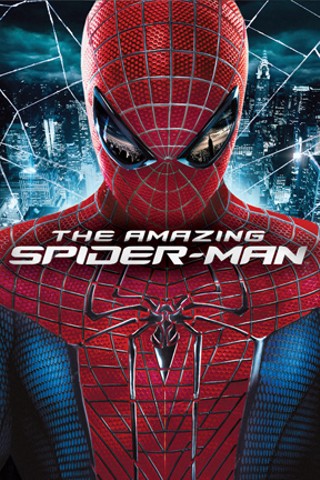In 1954, congressional subcommittees convened to discuss the growing alarm over juvenile delinquency in the U.S. There were special hearings devoted to comic books—three days of testimony about the content in more-graphic comics and the impact the industry as a whole might have on teenagers.
From that, comic-book publishers adopted something called the Comics Code Authority to self-police potentially objectionable content. That seems like such an antiquated notion, and it's true that many of the code's mandates were ignored over time, but the comics industry didn't completely abandon the CCA until last year.
If the CCA were still around, however, Marvel wouldn't have needed to worry about offending anyone with The Amazing Spider-Man. It's formulaic to the point of being detrimental—as if reintroducing the character requires reintroducing the idea of superhero movies—and it never, ever, takes a step you don't expect. While The Avengers toyfully plays with an audience that knows it's all CGI bullshit and merchandising, and Christopher Nolan's Batman needs a full-time analyst, this Spider-Man just paints by the numbers and hopes you're OK with that.
The most-famous quote from the first Spider-Man adaptation, now just a 10-year-old rust heap in Stan Lee's yard, was Uncle Ben's iconic line, "With great power comes great responsibility." It's not only everything a great movie quote embodies—short and to the point, instantly memorable, universal—it also set the table for the action through the rest of the series. But by the third movie, which featured Spidey dancing in a club and wearing guyliner, director Sam Raimi was ignoring the responsibility of making these films fun and interesting, and they no longer seemed to be leading anywhere fruitful.
The quote lives on in spirit in The Amazing Spider-Man—which is certainly the quickest "reimagining" of a mammoth blockbuster in history—but those exact words don't leave the lips of the recast Uncle Ben (Martin Sheen). That's true of pretty much all of the important things in this new Spider-Man epic: It's never really its own film in any way, always retracing the steps of a film almost nobody has forgotten. There's a lot of internal list-checking; you may catch yourself thinking, "Oh, this is the montage where he figures out how to use his powers," or, "This must be the guy who kills Uncle Ben later."
Perhaps beginning anew—when the story was done so well just a decade ago—was the wrong decision. After all, nobody said Spider-Man should stop after that debut performance, so the problem wasn't with establishing the history. But that's where we find ourselves, meeting geeky outcast Peter Parker (Andrew Garfield) and wanting to fast-forward to the good stuff. Because of that and the lack of action in the first half-hour, the pacing of this film leaves a lot to be desired.
The Amazing Spider-Man does have some great elements, but they orbit each other without ever truly being in sync. To begin with, Andrew Garfield is incredibly solid. His performance is more put upon when he discovers his new talents than Tobey Maguire's wide-eyed portrayal. The girl is different, but she's still practically the same: Gwen Stacy replaces Mary Jane Watson, and Emma Stone is a marked improvement over walking raincloud Kirsten Dunst.
Director Marc Webb was a surprise choice. When his hiring was announced, he had just scored with (500) Days of Summer, one of the real treats of 2009, but not exactly superhero fare. But the parts of The Amazing Spider-Man that feel the most genuine are the chemistry-builders between Garfield and Stone, which owe more to (500) Days than the Sam Raimi trilogy.
There are fewer characters on the whole, and that's a plus. Comic-book movies tend to think more is more, but Webb keeps the action pretty centralized around Peter and Gwen, his aunt and uncle, and her father, a New York police captain (Denis Leary). There's only one villain, and that's nice, but Rhys Ifans doesn't shatter any preconceptions as the Lizard. It's not a great performance, but the past decade has shown us that—mutant or not—the best comic-book villains are still very human in form. The effects might be used better here than they were 10 years ago, although they're still just a guy swinging on webs between buildings.
Comic-book universes are ever expanding and offer a lot of alternate timelines and histories for their characters. It's one of the reasons a reboot of Spider-Man is, on its own, not a lousy idea. But starting at the beginning again is certainly questionable, and playing it so safe doesn't help this installment very much. Hopefully the unavoidable sequels will take Garfield's intensity and instincts to new and different places—or this entire process will be futile.











